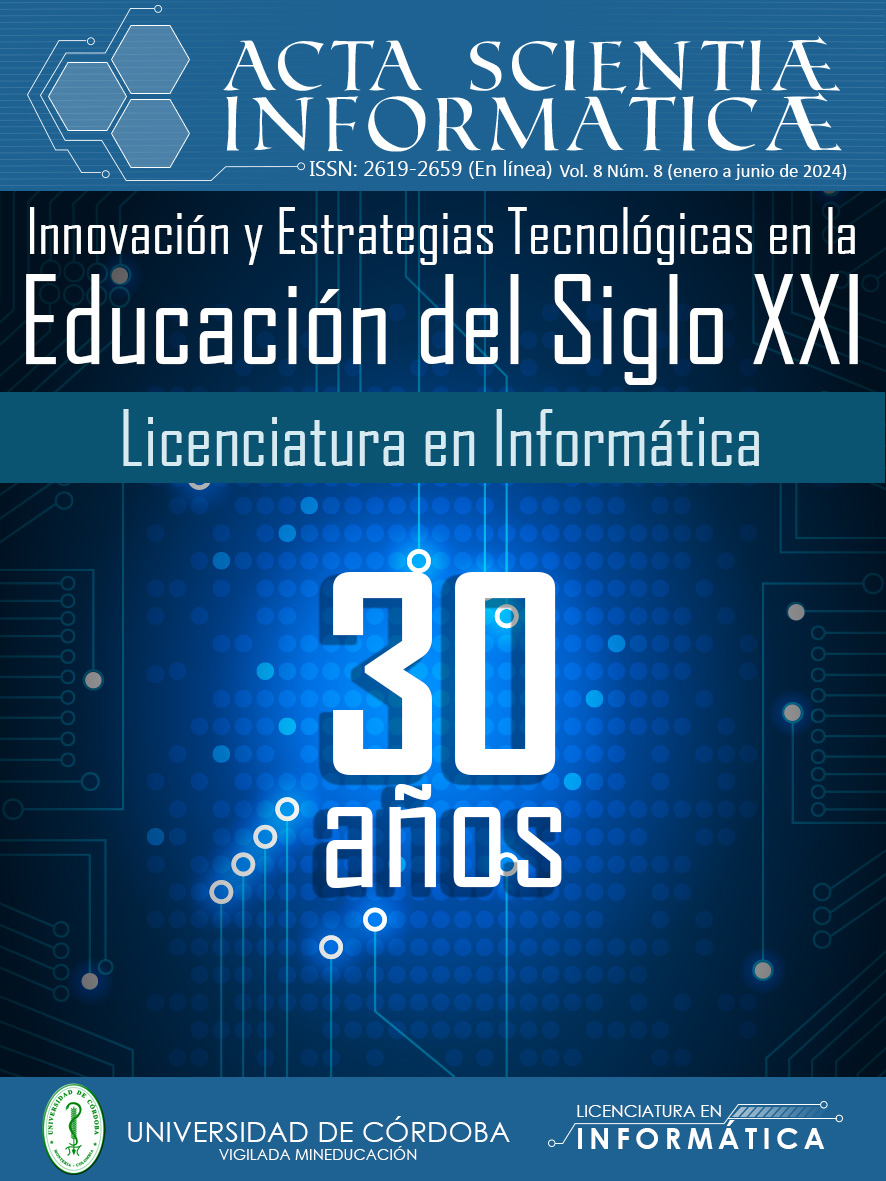DISEÑO DE UN MODELO DE ACTIVIDADES DE APRENDIZAJE PARA UN SISTEMA TUTOR INTELIGENTE ENFOCADO EN EL DESARROLLO DE LAS COMPETENCIAS DEL SIGLO XXI DE RESOLUCIÓN DE PROBLEMAS EN ESTUDIANTES DE EDUCACIÓN MEDIA
DISEÑO DE UN MODELO DE ACTIVIDADES DE APRENDIZAJE PARA UN SISTEMA TUTOR INTELIGENTE ENFOCADO EN EL DESARROLLO DE LAS COMPETENCIAS DEL SIGLO XXI DE RESOLUCIÓN DE PROBLEMAS EN ESTUDIANTES DE EDUCACIÓN MEDIA
Show authors biography
The objective of the research is to design a model of learning activities for an Intelligent Tutor System which seeks to strengthen the competencies of the 21st century, in this specific case to strengthen the problem solving competency. In order to achieve this objective, a literature review is carried out in which the pedagogical, didactic and technological principles for its design are established; the action research design was used, taking into account two cycles of four moments each. A first cycle where the principles and the general design of the model are established, a second cycle where a prototyping test and expert review were carried out with their respective feedback. The results obtained are satisfactory, since it was possible to establish the principles and characteristics necessary for the design of the model, and the prototyping test is successful, which demonstrates that the activities designed are compatible with the ITS criteria.
Article visits 98 | PDF visits
Downloads
- Belloch, C. (2017). Diseño instruccional.
- Maribe, R. (2009). Instructional Designe: The ADDIE Aproach. doi: 10.1007/978-0-387-09506-6
- Morales-González, B., Edel-Navarro, R., & Aguirre-Aguilar, G. (2014). Modelo ADDIE (análisis, diseño, desarrollo, implementación y evaluación): Su aplicación en ambientes educativos. Los modelos tecno-educativos, revolucionando el aprendizaje del siglo XXI, 33-46.
- Penzo, V. (2009). Diseño y elaboración de actividades de aprendizaje.
- Romero, M., & Gebera, O. T. (2012). Serious Games para el desarrollo de las competencias del siglo XXI. Revista de Educación a Distancia (RED), (34).
- Perales Palacios, F. J. (1993). La resolución de problemas: una revisión estructurada. Enseñanza de las ciencias: revista de investigación y experiencias didácticas.
- Gouraige, A. B., & Agramonte, A. B. (2002). Tecnología Educativa: concepción actual, logros y limitaciones didácticas. EduSol, 2(4), 1-9.
- Hooshyar, D., Ahmad, R. B., Yousefi, M., Yusop, F. D., & Horng, S. J. (2015). A flowchart‐based intelligent tutoring system for improving problem‐solving skills of novice programmers. Journal of computer assisted learning, 31(4), 345-361.
- Wang, D., Han, H., Zhan, Z., Xu, J., Liu, Q., & Ren, G. (2015). A problem solving oriented intelligent tutoring system to improve students' acquisition of basic computer skills. Computers & Education, 81, 102-112.
- Latorre, A. (2004). La investigación-acción. Conocer y cambiar la práctica educativa, 4.
- Rodríguez Illera, J. L., Escofet, A., & Azzato, M. (2005). Un sistema abierto para la creación de contenidos educativos digitales


